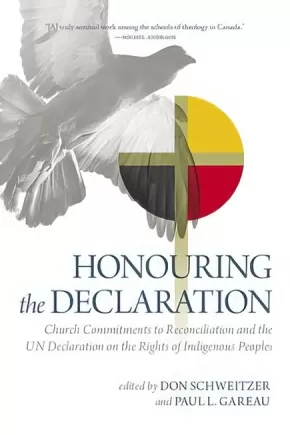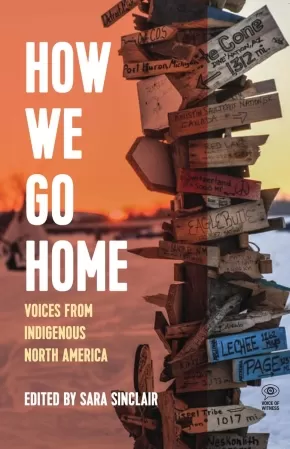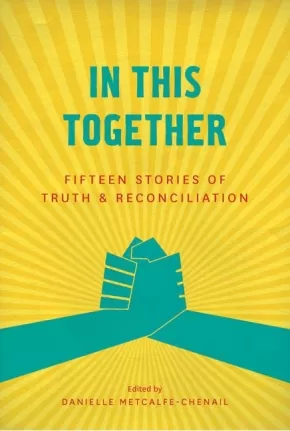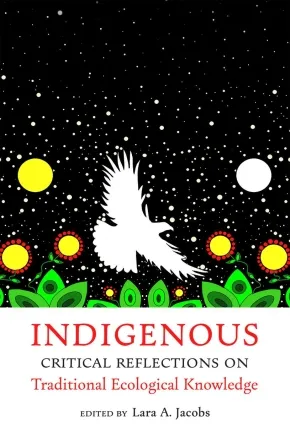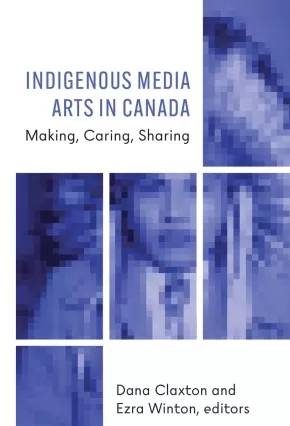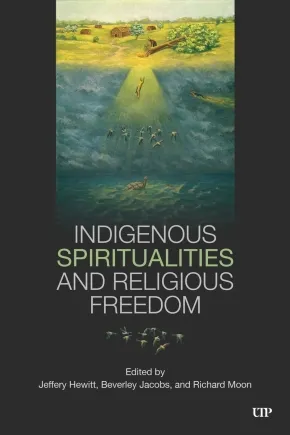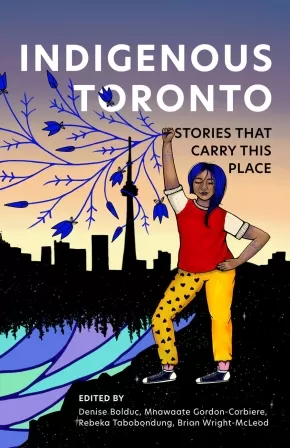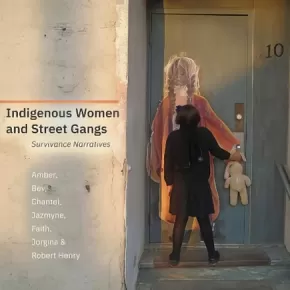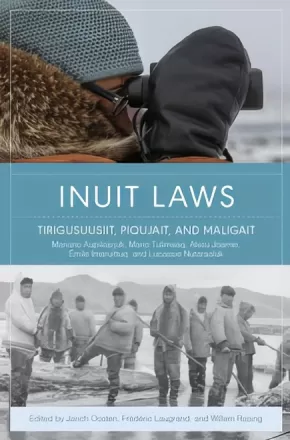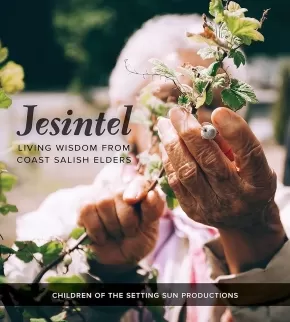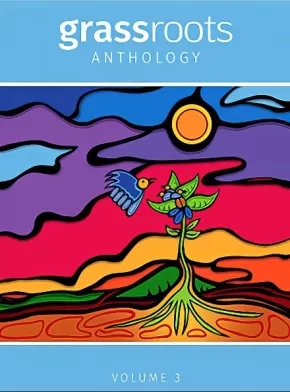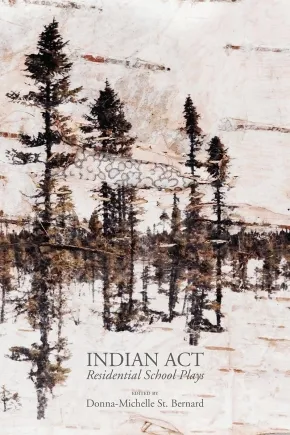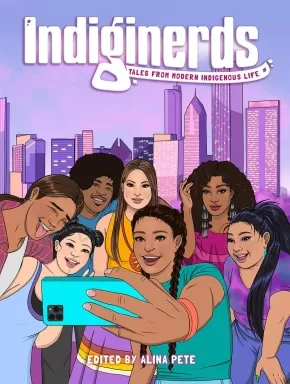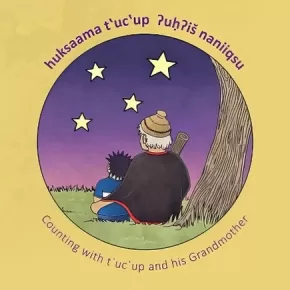
Various Indigenous Contributors
Books (11)
Honouring the Declaration: Church Commitments to Reconciliation and the UN Declaration on the Rights of Indigenous Peoples
$39.95
Editors:
Format:
Paperback
Text Content Territories:
Indigenous Canadian;
Grade Levels: University/College;
ISBN / Barcode: 9780889778320
Synopsis:
Synopsis:
How can churches carry out their commitment to the United Nations Declaration on the Rights of Indigenous Peoples?
Honouring the Declaration provides academic resources to help The United Church of Canada and other Canadian denominations enact their commitment to the UN Declaration on the Rights of Indigenous Peoples and offers a framework for reconciliation between Indigenous and non-Indigenous peoples in Canada.
Featuring essays from scholars working from a range of disciplines, including religious studies, Indigenous legal studies, Christian theology and ethics, Biblical studies, Indigenous educational leadership within the United Church, and social activism, the collection includes both Indigenous and non-Indigenous voices, all of whom respond meaningfully to the Truth and Reconciliation Commission's Calls to Action.
The texts explore some of the challenges that accepting the UN Declaration as a framework poses to the United Church and other Canadian denominations, and provides academic reflection on how these challenges can be met. These reflections include concrete proposals for steps that Canadian denominations and their seminaries need to take in light of their commitment to the Declaration, a study of a past attempt of the United Church to be in solidarity with Indigenous peoples, and discussions of ethical concepts and theological doctrines that can empower and guide the church in living out this commitment.
Reviews
“[A] truly seminal work among the schools of theology in Canada.” —Michel Andraos, Dean of Theology, Université Saint-Paul and editor of The Church and Indigenous Peoples in the Americas
Educator Information
Provides a framework for UNDRIP's implementation of the Truth and Reconciliation Commission's Calls to Action for Canadian churches to address and mitigate spiritual violence towards Indigenous Peoples.
Written by scholars at St. Andrew's College, Indigenous scholars, and activist group Iskwewuk Ewichiwitochik/Women Walking Together to provide a framework for the United Church, and other denominations, to adopt UNDRIP and uphold their commitments to reconciliation.
Contributor Sa'ke'j Henderson co-wrote UNDRIP.
Contributors include: James [Sa’ke’j] Youngblood Henderson, Saskatoon, SK; Christine Mitchell, Saskatoon, SK; Lynn Caldwell, Saskatoon, SK; Adrian Jacobs, Beausejour, MB; Sandra Beardsall, Saskatoon, SK; Paul L. Gareau, Edmonton, AB; HyeRan Kim-Cragg, Toronto, ON; Don Schweitzer, Saskatoon, SK; Jennifer Janzen-Ball, Saskatoon, SK; Iskwewuk E-wichiwitochik/ Women Walking Together Collective, Saskatoon, SK
Additional Information
312 pages | 6.00" x 9.00" | Paperback
How We Go Home: Voices from Indigenous North America
$26.00
Editors:
Format:
Paperback
Text Content Territories:
Indigenous Canadian; First Nations; Salish; Coast Salish; Snuneymuxw ; Saanich (WSANEC); Tsartlip; Haudenosaunee (Iroquois); Tuscarora; Kanyen'keha:ka (Mohawk); Gitxsan (Gitksan); Anishinaabeg; Ojibway; Saulteaux; Oji-Cree; Métis; Indigenous American; Native American; Sioux; Lakota; Sicangu Oyate (Rosebud Sioux Tribe); Santa Clara Pueblo; Mojave; Apache; Lipan Apache Tribe of Texas;
Reading Level: N/A
ISBN / Barcode: 9781773633381
Synopsis:
Synopsis:
In myriad ways, each narrator's life has been shaped by loss, injustice, and resilience--and by the struggle of how to share space with settler nations whose essential aim is to take all that is Indigenous.
Hear from Jasilyn Charger, one of the first five people to set up camp at Standing Rock, which kickstarted a movement of Water Protectors that roused the world; Gladys Radek, a survivor of sexual violence whose niece disappeared along Canada's Highway of Tears, who became a family advocate for the National Inquiry into Missing and Murdered Indigenous Women and Girls; and Marian Naranjo, herself the subject of a secret radiation test while in high school, who went on to drive Santa Clara Pueblo toward compiling an environmental impact statement on the consequences of living next to Los Alamos National Laboratory. Theirs are stories among many of the ongoing contemporary struggles to preserve Indigenous lands and lives--and of how we go home.
Reviews
“How We Go Home is a testament to modern-day Indigenous revitalization, often in the face of the direst of circumstances. Told as firsthand accounts on the frontlines of resistance and resurgence, these life stories inspire and remind that Indigenous life is all about building a community through the gifts we offer and the stories we tell.”— Niigaan Sinclair, associate professor, Department of Native Studies at the University of Manitoba and columnist, Winnipeg Free Press
“The voices of How We Go Home are singing a chorus of love and belonging alongside the heat of resistance, and the sound of Indigenous life joyfully dances off these pages.”—Leanne Betasamosake Simpson, author of As We Have Always Done
“How We Go Home confirms that we all have stories. These stories teach us history, morality, identity, connection, empathy, understanding, and self-awareness. We hear the stories of our ancestors and they tell us who we are. We hear the stories of our heroes and they tell us what we can be." —Honourable Senator Murray Sinclair
Educator Information
Table of Contents
Editor’s Notes
Introduction (Sara Sinclair)
Executive Director’s Note (Mimi Lok)
Map
Gladys Radek, Terrace, Gitxsan / Wet’suwet’en First Nations—“When Tamara went missing, it took the breath out of me.”
Jasilyn Charger, Cheyenne River Sioux—“My son’s buried by the river. . . . I vowed to him that he’s gonna be safe, that no oil was gonna touch him.”
Wizipan Little Elk, Rosebud Lakota Tribe—“On the reservation, you have the beauty of the culture and our traditional knowledge contrasted with the reality of poverty.”
Geraldine Manson, Snuneymuxw First Nation—The nurse was trying to get me to sign a paper to put our baby, Derrick, up for adoption.”
Robert Ornelas, New York City, Lipan Apache / Ysleta del Sur Pueblo—“A part of the soul sickness for me was being ashamed . . . what we were being taught about Indians was so minimal and so negative.”
Ashley Hemmers, Fort Mojave Indian Tribe—“I didn’t work my ass off to get to Yale to be called a squaw.”
Ervin Chartrand, Selkirk, Métís/Salteaux—“They said I fit the description because I looked like six other kids with leather vests and long hair who looked Indian.”
James Favel, Winnipeg, Peguis First Nation “You’re a stakeholder because you’ve got to walk these streets every day.”
Marian Naranjo, Santa Clara Pueblo—“Indigenous peoples’ reason for being is to be the caretakers of Creator’s gifts—of the air, the water, the land.”
Blaine Wilson, Tsartlip First Nation “When I was twenty-five, thirty, there was more salmon and I was fishing every other day. Now I’m lucky to go once a week.”
Althea Guiboche, Winnipeg, Métis/Ojibwe/Salteaux “I had three babies under three years old and I was homeless.”
Vera Styres, Six Nations of the Grand River, Mohawk/Tuscarora“I was a ‘scabby, dirty little Indian.’”
Glossary
Historical Timeline of Indigenous North America
Essay: 1. The Trail of Broken Promises: US and Canadian Treaties with First Nations
Essay 2: “Indigenous Perspectives on Intergenerational Trauma”: An Interview with Johnna James
Essay 3: Indigenous Resurgence
Ten Things You Can Do
Further Reading
Acknowledgements
Additional Information
331 pages | 6.00" x 9.00" | Paperback
In This Together: Fifteen Stories of Truth and Reconciliation
$19.95
Editors:
Format:
Paperback
Text Content Territories:
Indigenous Canadian;
ISBN / Barcode: 9781927366448
Synopsis:
Synopsis:
What is real reconciliation? This collection of essays from both Indigenous and non-Indigenous contributors from across Canada welcomes readers into a timely, healing conversation—one we've longed for but, before now, have had a hard time approaching.
These reflective and personal pieces come from journalists, writers, academics, visual artists, filmmakers, city planners, and lawyers, all of whom share their personal light-bulb moments regarding when and how they grappled with the harsh reality of colonization in Canada, and its harmful legacy. Without flinching, they look deeply and honestly at their own experiences and assumptions about race and racial divides in Canada in hopes that the rest of the country will do the same.
Featuring a candid conversation between CBC radio host Shelagh Rogers and Chief Justice Sinclair, this book acts as a call for all Canadians to make reconciliation and decolonization a priority, and reminds us that once we know the history, we all have the responsibility—and ability—to make things better.
Additional Information
224 pages | 5.75" x 8.50"
Edited by Danielle Metcalfe-Chenail
Authenticity Note: This work contains some essays from Indigenous contributors; therefore, it has been labelled as containing Authentic Indigenous Text.
Indigenous Critical Reflections on Traditional Ecological Knowledge
$51.50
Editors:
Format:
Paperback
Text Content Territories:
Indigenous;
Reading Level: N/A
ISBN / Barcode: 9781962645324
Synopsis:
Synopsis:
With more than fifty contributors, Indigenous Critical Reflections on Traditional Ecological Knowledge offers important perspectives by Indigenous Peoples on Traditional Ecological Knowledge and Indigenous value systems. The book aims to educate and inspire readers about the importance of decolonizing how Indigenous Knowledges are considered and used outside of Native communities.
By including the work of Indigenous storytellers, poets, and scholars from around the globe, editor Lara Jacobs and chapter authors effectively explore the Indigenous value systems—relationships, reciprocity, and responsibility—that are fundamental to Indigenous Knowledge systems and cultures. Indigenous languages and positionality statements are featured for each of the contributors to frame their cultural and geographical background and to allow each Indigenous voice to lead discussions and contribute critical discourse to the literature on Indigenous Knowledges and value systems. By creating space for each of these individual voices, this volume challenges colonial extraction norms and highlights the importance of decolonial methods in understanding and protecting Indigenous Knowledges.
Indigenous Critical Reflections on Traditional Ecological Knowledge is an essential resource for students, academics, members of Tribal, state, and federal governments, Indigenous communities, and non-Indigenous allies as well as a valuable addition to environmental and Indigenous studies collections.
Reviews
“Indigenous Peoples have shared values, but we live them out in ways that reflect the places where our Tribes emerged as People and the communities in which we live. Lara Jacobs has created a touchstone in these collected essays and reflections from Indigenous Peoples throughout the so-called Americas and beyond, giving voice to the various ways we live out relationships, reciprocity, and responsibility. I will return to these words again and again, and so will you.” —Patty Krawec, author of Becoming Kin: An Indigenous Call to Unforgetting the Past and Reimagining Our Future
Educator Information
Contributors include: Melinda M. Adams, Joe Anderson, Coral Avery, Andrew Kalani Carlson, Kathryn Champagne, Brandie Makeba Cross, Joanna M. DeMeyer, Jonathan James Fisk, Pat Gonzales-Rogers, Celina Gray, Rhode Grayson, Zena Greenawald, Jennifer Grenz, Joy Harjo, Mandi Harris, Jessica Hernandez, Victor Hernandez, David Iniguez, Michelle M. Jacob, Lara A. Jacobs, Lydia L. Jennings, Eileen Jimenez, Stephanie Kelley, David G. Lewis, Tomás A. Madrigal, Tara McAllister, Lauren Wendelle Yowelunh McLester-Davis, Angeles Mendoza, Kat Milligan-McClellan, Todd A. Mitchell swəlítub, Don Motanic, ‘Alohi Nakachi, Kaikea Nakachi, Kobe , Natachu, Ululani Kekahiliokalani Brigitte Russo Oana, Jennifer R. O’Neal, Lily Painter, Britt Postoak, Leasi Vanessa Lee Raymond, Anamaq Margaret H. C. Rudolf, Oral Saulters, Sam Schimmel, Paulette Steeves, Joni Tobacco, Angelo Villagomez, Vivi Vold, Margaret Palaghicon Von Rotz, Luhui Whitebear, Joseph Gazing Wolf, Monique Wynecoop, and Cherry YEW Yamane.
Additional Information
464 pages | 10.00" x 9.00" | 21 b&w photos, 6 charts, 7 tables | Paperback
Indigenous Media Arts in Canada: Making, Caring, Sharing
$46.99
Editors:
Format:
Paperback
Text Content Territories:
Indigenous Canadian;
Reading Level: N/A
ISBN / Barcode: 9781771125413
Synopsis:
Synopsis:
Indigenous and settler scholars and media artists discuss and analyze crucial questions of narrative sovereignty, cultural identity, cultural resistance, and decolonizing creative practices.
Humans are narrative creatures, and since the dawn of our existence we have shared stories. Storytelling is what connects us, what helps us give shape and understanding to the world and to each other. Who tells whose stories in which particular ways leads to questions of belonging, power, relationality, community and identity. This collection explores those issues with a focus on settler-Indigenous cultural politics in the country known as Canada, looking in particular at Indigenous representation in media arts. Chapters feature roundtable discussions, interviews, film analyses, resurgent media explorations, visual culture advocacy and place-based practices of creative expression.
Eclectic in scope and diverse in perspective, Indigenous Media Arts in Canada is unified by an ethic of conciliation, collaboration, and cultural resistance. Engaging deftly and thoughtfully with instances of cultural appropriation as well as the oppressive structures that seek to erode narrative sovereignty, this collection shines as a crucial gathering of thoughtful critique, cultural kinship, and creative counterpower.
Reviews
“Dana Claxton and Ezra Winton’s collection of conversations between, for, and about Indigenous media makers poses vital, critical, and generative questions about Indigenous film, film festivals and institutions, residential school histories, and decolonization without providing easy answers. These conversations are at times joyful expressions of the radical possibilities of media arts and at times painful provocations about settler colonial violence and its representational apparatuses. The chapters, written by the most brilliant and creative minds in contemporary Indigenous film, are paradigm-shifting love letters to the land, lived experience, collaboration, and futurity.” —Michelle Raheja, Associate Professor, Department of English, University of California, Riverside, author of Reservation Reelism: Redfacing, Visual Sovereignty, and Representations of Native Americans in Film
Educator Information
Table of Contents
Indigenous Media Arts in Canada: Making, Caring, Sharing – Edited by Dana Claxton and Ezra Winton
Acknowledgements
Introduction: Seeing, Knowing, Lifting – Dana Claxton and Ezra Winton
Part I – Decolonizing Media Arts Institutions
Part I Introduction – Dana Claxton and Ezra Winton
1. Our Own Up There: A Discussion at imagineNATIVE – Danis Goulet and Tasha Hubbard with Jesse Wente, Alethea Arnaquq-Baril and Shane Belcourt
2. Curating the North: Documentary Screening Ethics and Inuit Representation in Canada – Ezra Winton and Alethea Arnaquq-Baril
3. Sights of Homecoming: Locating Restorative Sites of Passage in Zacharias Kunuk’s Festival Performance of Angirattut – Claudia Sicondolfo
Part II – Protecting Culture
Part II Introduction – Dana Claxton and Ezra Winton
4. Addressing Colonial Trauma Through Mi’kmaw Film – Margaret Robinson and Bretten Hannam
5. Not Reconciled: The Complex Legacy of Films on Canadian "Indian" Residential Schools – Brenda Longfellow
6. The Resurgence of Indigenous Women in Contemporary Québec Cinema – Karine Bertrand
7. “Our Circle Is Always Open”: Indigenous Voices, Children’s Rights, and Spaces of Inclusion in the Films of Alanis Obomsawin – Joanna Hearne
Part III – Methods/Knowledges/Interventions
Part III Introduction Dana Claxton and Ezra Winton
8. Indigenous Documentary Methodologies: ChiPaChiMoWin: Telling Stories – Jules Arita Koostachin
9. Marking and Mapping Out Embodied Practices through Media Art – Julie Nagam and Carla Taunton
10. Curatorial Insiders/Outsiders: Speaking Outside and Collaboration as Strategic Intervention – Toby Katrine Lawrence
11. The Generative Hope of Indigenous Interactive Media: Ecological Knowledge and Indigenous Futurism – Michelle Stewart
Part IV - Resurgent Media/Allies/Advocacy
Part IV Introduction – Dana Claxton and Ezra Winton + Sasha Crawford-Holland and Lindsay LeBlanc
12. “Making Things Our [Digital] Own”: Lessons on Time and Sovereignty from Indigenous Computational Art – Sasha Crawford-Holland and Lindsay LeBlanc
13. Careful Images: Unsettling Testimony in the Gladue Video Project – Eugenia Kisin and Lisa Jackson
Concluding Thoughts
Part 1: Beyond Words and Images – Ezra Winton and Dana Claxton Part 2: Setting the Record Straight – Lisa Jackson
About the Contributors
References
Index
Contributors
Alethea Arnaquq-Baril
Shane Belcourt
Karine Bertrand
Dana Claxton
Sasha Crawford-Holland
Danis Goulet
Bretten Hannam
Joanna Hearne
Tasha Hubbard
Lisa Jackson
Eugenia Kisin
Jules Arita Koostachin
Toby Katrine Lawrence
Lindsay LeBlanc
Brenda Longfellow
Julie Nagam
Margaret Robinson
Claudia Sicondolfo
Michelle Stewart
Carla Taunton
Jesse Wente
Ezra Winton
Additional Information
450 pages | 6.00" x 9.00" | Paperback
Indigenous Peoples and Dementia: New Understandings of Memory Loss and Memory Care
$32.95
Format:
Paperback
Text Content Territories:
Indigenous American; Indigenous Canadian;
Grade Levels: University/College;
ISBN / Barcode: 9780774837842
Synopsis:
Synopsis:
Dementia is on the rise around the world, and health organizations in Canada, the United States, and New Zealand are responding to the urgent need – voiced by communities and practitioners – for guidance on how best to address memory loss in Indigenous communities. This innovative volume responds to the call by bringing together, for the first time, research studies and Indigenous teaching stories on this topic. Using decolonizing methods, it addresses key areas of concern with chapters that:
- examine the prevalence and causes of dementia, as well as the public discourse surrounding the issue
- provide examples for incorporating Indigenous perspectives on care and prevention into research and practice
- demonstrate culturally safe applications of research to Elder care.
Presenting strategies for health practice and effective collaborative research informed by Indigenous knowledge and worldviews, this book is a valuable resource for researchers, practitioners, students, and educators who seek a better understanding of memory loss and memory care.
This book will be of interest to students, educators, researchers, and practitioners working in or interested in the fields of dementia studies and Indigenous health.
Reviews
"This book represents the first significant contribution to what we know about how Indigenous peoples understand dementia and memory loss." - from the foreword by Rod McCormick (Kanienkehaka), professor and British Columbia Innovation Council research chair in Aboriginal Health, Faculty of Education and Social Work, Thompson Rivers University
"A leap forward in understanding how health care can be provided in culturally safe ways." - Lloy Wylie, assistant professor, Schulich School of Medicine and Dentistry, Western University
Educator Information
Table of Contents
Foreword / Rod McCormick
Introduction / Wendy Hulko, Jean E. Balestrery, and Danielle Wilson
We Call It Healing / Secwepemc Elder, Wendy Hulko, Danielle Wilson, Star Mahara, Gwen Campbell-McArthur, Jean William, Cecilia DeRose, and Estella Patrick Moller
Part 1: Prevalence, Causes, and Public Discourse
1 Current and Projected Dementia Prevalence in First Nations Populations in Canada / Jennifer Walker and Kristen Jacklin
2 Indigenous Vascular Dementia: An Indigenous Syndemic Dementia Model / J. Neil Henderson, Linda D. Carson, and Kama King
3 A Story about Joe in the News Media: Decolonizing Dementia Discourse / Suzanne MacLeod
Coyote: Keeper of Memories / Danielle Wilson, Gwen Campbell-McArthur, Wendy Hulko, Star Mahara, Jean William, Cecilia DeRose, and Estella Patrick Moller
Part 2: Indigenous Perspectives on Care and Prevention
4 Perceptions of Dementia Prevention among Anishinaabe Living on Manitoulin Island / Jessica E. Pace, Kristen Jacklin, Wayne Warry, and Karen Pitawanakwat
5 The Understanding from Within Project: Perspectives from Indigenous Caregivers / Carrie Bourassa, Melissa Blind, Kristen Jacklin, Eric Oleson, and Kate Ross-Hopley
6 Oldest Age Does Not Come Alone: “What’s the Name of the Day?” / Mere Kēpa
A Fecund Frontier: We Listen ... in between Talk ... We Listen / Jean E. Balestrery and Sophie “Eqeelana Tungwenuk” Nothstine
Part 3: Applying Theory and Knowledge to Practice
7 Depression, Diabetes, and Dementia: Historical, Biocultural, and Generational Factors among American Indian and Alaska Native Elders / Linda D. Carson, J. Neil Henderson, and Kama King
8 Adapting CIRCA-BC in the Post-Residential-School Era / Barbara Purves and Wendy Hulko
9 Focus(ing) on Love and Respect: Translating Elders’ Teachings on Aging and Memory Loss into Learning Tools for Children and Youth / Wendy Hulko, Danielle Wilson, and Jessica Kent
Conclusion / Wendy Hulko, Jean E. Balestrery, and Danielle Wilson
Index
Additional Information
264 pages | 6.00" x 9.00"
Indigenous Spirituality and Religious Freedom
$34.95
Format:
Paperback
Text Content Territories:
Indigenous Canadian;
ISBN / Barcode: 9781487523794
Synopsis:
Synopsis:
Indigenous Spiritualities and Religious Freedom investigates the complex relationship between Indigenous legal orders and Canadian law, emphasizing the richness of Indigenous spiritual practices alongside their historical and ongoing suppression by the Canadian state. It critically examines the role and limitations of the Canadian Charter of Right’s section 2(a), which guarantees freedom of religion, in protecting the spiritual lives of Indigenous communities.
The book highlights the holistic nature of Indigenous spiritual beliefs, which view the spiritual as immanent and closely tied to land and specific locations. The book reveals how, by contrast, the Anglo-American conception of religious freedom often separates spiritual and religious matters from civic and political concerns, and so fails to provide meaningful protection for Indigenous cultural and spiritual practices.
Many essays in this collection propose alternative approaches to the relationship between Canadian law and Indigenous legal orders, particularly regarding Indigenous spiritual practices. Ultimately, Indigenous Spiritualities and Religious Freedom reveals the challenges – and perhaps the futility – of seeking significant protection for Indigenous spiritual practices within the existing framework of religious freedom.
Educator Information
Chapters
Introduction
Jeffery Hewitt, Beverly Jacobs, and Richard Moon
1. Water Is Life: Haudenosaunee Responses to Climate Change and Water Security - Dawn Martin-Hill
2. The Gaya’shra’gowa’ in the Twenty-First Century: Traditional Indigenous Governance and the Problem of Canadian Settler Colonial Law - Theresa McCarthy
3. An Imaginary for Our Sisters: Spirits and Indigenous Law - Val Napoleon
4. Indigenous Religious Rights: Reconciling Religious Views and Decolonizing Section 2(a) of the Charter - Natasha Bakht
5. Is State Neutrality Bad for Indigenous Religious Freedom? - Benjamin L. Berger
6. Ktunaxa and the Shape of Religious Freedom - Richard Moon
7. Beyond Experience? Objectivity, Indigeneity, and Freedom of Religion - John Borrows
8. Ancestors in the Land: Indigenous Burial Sites and Religious Freedom - Senwung Luk and Howard Kislowicz
9. Posing the Land Question: An Analysis of Servatius v. Alberni School District No. 70 - Ardith Walkem
10. The Perils of Rights and Reconciliation for Indigenous Peoples - Karen Drake
Contributors
Additional Information
240 pages | 6.00" x 9.00" | Paperback
Indigenous Toronto: Stories that Carry This Place
$24.95
Editors:
● Denise Bolduc (Indigenous Canadian; First Nations; Anishinaabeg; Ojibway; Batchewana;)
● Mnawaate Gordon-Corbiere (Indigenous Canadian; First Nations; Anishinaabeg; Ojibway; M'Chigeeng First Nation;)
● Rebeka Tabobondung (Indigenous Canadian; First Nations; Anishinaabeg; Wasauksing First Nation;)
 Show More ...
Show More ...
● Mnawaate Gordon-Corbiere (Indigenous Canadian; First Nations; Anishinaabeg; Ojibway; M'Chigeeng First Nation;)
● Rebeka Tabobondung (Indigenous Canadian; First Nations; Anishinaabeg; Wasauksing First Nation;)
Format:
Paperback
Text Content Territories:
Indigenous Canadian; First Nations; Anishinaabeg; Haudenosaunee (Iroquois); Huron-Wendat (Ouendat);
ISBN / Barcode: 9781552454152
Synopsis:
Synopsis:
A collection of perspectives by and about Indigenous Toronto, past, present, and future.
Beneath every major city in North America lies a deep and rich Indigenous history that has been colonized, paved over, and ignored. Few of its current inhabitants know that Toronto has seen 12,000 years of different peoples, including the Haudenosaunee, the Anishinaabe, the Huron-Wendat, and the Mississaugas of the New Credit, and a vibrant culture and history that thrives to this day.
With original contributions by Indigenous elders, scholars, journalists, artists, activists, and historians about art, food, health, and more, this unique anthology explores the poles of erasure and cultural continuity that have come to define a crossroads city-region that was known as a meeting place long before the arrival of European settlers.
Contributors include political scientist Hayden King, historian Alan Corbiere, musician Elaine Bomberry, artist Duke Redbird, playwright Drew Hayden Taylor, educator Kerry Potts, writer/journalist Paul Seesequasis and former Mississaugas of the New Credit chief Carolyn King.
Additional Information
192 pages | 5.50" x 8.50"
Indigenous Women and Street Gangs: Survivance Narratives
$32.99
Format:
Paperback
Text Content Territories:
Indigenous Canadian;
Grade Levels: University/College;
ISBN / Barcode: 9781772125498
Synopsis:
Synopsis:
Amber, Bev, Chantel, Jazmyne, Faith, and Jorgina are six Indigenous women previously involved in street gangs or street lifestyles. In Indigenous Women and Street Gangs they collaborate with Robert Henry (Métis) to share an emancipatory expression of their lives through photovoice. Each author shares a narrative that begins with her earliest memory and continues to the present. This is followed by a selection of photographs the woman took to show how she has changed with her experiences. Readers can expect difficult life stories imbued with hope and humour. Throughout, these women show us the meaning of survivance; a process of survival, resistance, resurgence, and growth.
“I don’t think there is any such thing as bad; it’s called healing, you know? It is starting to fix yourself inside your heart, you know? You just got to keep doing it, that’s all I got to say.”- Jazmyne
Educator Information
Caution: mature, triggering, explicit content.
Keywords / Subjects: survivance; photovoice; Indigenous; street gang; critical gang studies; Saskatchewan; women; oral history; community engaged research; relational practice; justice; child welfare; education; health; social work; social services; criminology
Table of Contents
ix Acknowledgements
xi Introduction
3 Amber
23 Bev
39 Chantel
59 Jazmyne
77 Faith
95 Jorgina
115 Photograph Captions
123 Bibliography
Additional Information
144 pages | 9.00" x 9.00" | Paperback
Inuit Laws: Tirigusuusiit, Piqujait, and Maligait
$27.95
Editors:
Format:
Paperback
Text Content Territories:
Indigenous Canadian; Inuit;
Grade Levels: University/College;
ISBN / Barcode: 9781897568507
Synopsis:
Synopsis:
Through the voices of Inuit elders, this book is a critical and cultural-historical engagement with the traditional concepts of tirigusuusiit, piqujait, and maligait.
These three concepts refer to what had to be followed, done, or not done in Inuit culture. Although these terms are now often used as equivalents to modern Western notions of law, this work examines how Inuit and Western concepts of law derive from completely different cultural perspectives. Through the guiding concepts of maligait, piqujait, and tirigusuusiit, this book transcends discussions of law, examining how these Inuit concepts are embedded in social and cosmic relationships.
This unique book examines these challenging concepts through the knowledge and stories of Inuit elders and evokes a unique experience whereby Western knowledge—embodied in the participating scholars—works to describe and understand Inuit knowledge and models of traditional law. This is a new and updated edition of Interviewing Inuit Elders Vol. 2: Perspectives on Traditional Law.
Contributing Elders: Mariano Aupilaarjuk, Marie Tulimaaq, Akisu Joamie, Émile Imaruittuq, and Lucassie Nutaraaluk.
Additional Information
380 pages | 6.00" x 9.00" | 2nd Edition
Jesintel: Living Wisdom from Coast Salish Elders
$48.00
Artists:
Format:
Paperback
Text Content Territories:
Indigenous Canadian; First Nations; Salish; Coast Salish; Sto:lo; Saanich (WSANEC); Tsartlip; Musqueam; Malahat; Cowichan; Tsleil-Waututh; Indigenous American; Native American; Salish; Coast Salish; Tulalip; Swinomish; Snoqualmie; Nisqually; Muckleshoot; Lhaq'temish (Lummi Nation); Klallam (Clallam); Jamestown S'Klallam;
Grade Levels: 12; University/College;
ISBN / Barcode: 9780295748641
Synopsis:
Synopsis:
“We need to learn and grow together, and if we are able to do this, we will create harmony,” counsels Tom Sampson, an elder of Tsartlip First Nation in British Columbia.
Dynamic and diverse, Coast Salish culture is bound together by shared values and relations that generate a resilient worldview. Jesintel—"to learn and grow together"—characterizes the spirit of this book, which brings the cultural teachings of nineteen elders to new generations.
Featuring interviews that share powerful experiences and stories, Jesintel illuminates the importance of ethical reciprocal relationships and the interconnectedness of places, land, water, and the spirit within all things. Elders offer their perspectives on language revitalization, Coast Salish family values and naming practices, salmon, sovereignty, canoe racing, and storytelling. They also share traumatic memories, including of their boarding school experiences and the epidemics that ravished their communities. Jesintel highlights the importance of maintaining relations and traditions in the face of ongoing struggles. Collaboration is at the heart of this work and informs how the editors and community came together to honor the boundless relations of Coast Salish people and their territories.
Elders Interviewed:
Tom Sampson (Tsartlip First Nation)
Virginia Cross (Muckleshoot Tribe)
Ernestine Gensaw (Lummi Nation)
Steve and Gwen Point (Stó:lō Nation)
Gene and Wendy Harry (Malahat Nation)
Claude Wilbur (Swinomish Tribe)
Richard Solomon (Lummi Nation)
Elaine Grinell (Jamestown S’Klallam Tribe)
Arvid Charlie (Cowichan Nation)
Amy George (Tsleil-Waututh Nation)
Nancy Shippentower (Nisqually Tribe)
Nolan Charles (Musqueam Indian Band)
Andy de los Angeles (Snoqualmie Tribe)
Jewell James (Lummi Nation)
Kenny Moses Sr. Family (Tulalip Tribal Nation)
Ramona Morris (Lummi Nation)
Reviews
"A beautiful sharing of thriving Coast Salish communities. Indigenous elders, cultures, and languages have so much precious wisdom to share, and Jesintel celebrates these through storytelling and photos. It is a generous gift to anyone who wants to better understand the resilience of Indigenous communities."- Michelle M. Jacob (Yakama), author of The Auntie Way: Stories Celebrating Kindness, Fierceness, and Creativity
Educator Information
Nineteen elders from Coast Salish communities in the Pacific Northwest and British Columbia offer a portrait of their perspectives on language, revitalization, and Coast Salish family values. Topics include naming practices, salmon, canoe journeys and storytelling.
Additional Information
224 pages | 9.00" x 10.00" | 144 colour illustrations | 1 map | Paperback
Teen Books (3)
Grassroots Anthology Volume 3
$9.95
Format:
Paperback
Text Content Territories:
Indigenous Canadian; First Nations;
ISBN / Barcode: 9781927849187
Synopsis:
Synopsis:
In volume three of the Grassroots Anthology, the celebration of First Nations artists and their craft continues. Poetry, short stories, photography and fine art are all featured, and MFNERC hopes to inspire younger generations through sharing these works. The gifts of storytelling and visual art have long been cherished by First Nations people, and in this anthology we offer these gifts for your own reflection and learning.
Indian Act: Residential School Plays
$29.95
Editors:
Format:
Paperback
Text Content Territories:
Indigenous Canadian;
ISBN / Barcode: 9781770919143
Synopsis:
Synopsis:
Indian Act is a tribute and thank you to those who survived the Indian Residential School system so that future generations could be free to pursue their lives unhindered by educationally enforced lowered expectations and institutionalized abuse. Plays by contemporary First Nations and Métis playwrights cover the broad scope of residential school experiences, all kinds of characters, and no stereotypes, giving voice to those who could not be heard.
Includes the plays:
Bunk #7 by Larry Guno
God and the Indian by Drew Hayden Taylor
They Know Not What They Do by Tara Began
A Very Polite Genocide or The Girl Who Fell to Earth by Melanie J. Murray
Kihew by Curtis Peeteetuce
Dear Mr. Buchwald by Yvette Nolan
Educator Information
Recommended resource for Grades 10-12 English Language Arts, Drama, and Acting.
Caution: Some plays contain mature subject matters and cover themes of substance abuse, sexual and physical violence, etc. Some plays are not appropriate for high school use and may be better suited for college-level courses.
Additional Information
392 pages | 6.00" x 9.00"
Indiginerds: Tales from Modern Indigenous Life
$30.95
Artists:
Format:
Paperback
Text Content Territories:
Indigenous Canadian;
ISBN / Barcode: 9781638991335
Synopsis:
Synopsis:
First Nations culture is living, vibrant, and evolving, and generations of Indigenous kids have grown up with pop culture creeping inexorably into our lives. From gaming to social media, pirate radio to garage bands, Star Trek to D&D, and missed connections at the pow wow, Indigenous culture is so much more than how it’s usually portrayed. Indiginerds is here to celebrate those stories!
Featuring an all-Indigenous creative team, Indiginerds is an exhilarating anthology collecting 11 stories about Indigenous people balancing traditional ways of knowing with modern pop culture. Includes work by Alina Pete, PJ Underwood, Kameron White, Rhael McGregory, and many more.
Educator Information
Recommended for ages 12 to 18.
Full Creator Listing: Tate Allen, Ida Aronson, Jordanna George, Raven John, Nipinet Landsem, Rhael McGregor, Sam “Mushki” Medlock, Alina Pete, Wren Rios, PJ Underwood, Kameron White
Additional Information
120 pages | 6.62" x 10.25" | Paperback
Kids Books (1)
Huksaama T'uc'up?uh?is Na: Counting with Grandmother
$14.00
Format:
Paperback
Text Content Territories:
Indigenous Canadian; First Nations; Nuu-chah-nulth (Nootka);
Reading Level: N/A
ISBN / Barcode: 9781999275112
Synopsis:
Synopsis:
meʔiƛqac ʔis i ʔukłamaḥ t`uc`up
Join t`uc`up and his grandmother as they count nature from one to ten.
This book is written in Nuu-chah-nulth. But, its simple illustrations make the text easy to follow for any reader.
Educator & Series Information
Language: Nuu-Chah-Nulth
Simple illustrations make the text easy to follow for any reader.
This book is part of the T'uc'up Series.
The Port Alberni Friendship Center offers sincere gratitude to the Elders and Knowledge Keepers who contributed their Traditional Knowledge, Language Translation, and Stories so generously in the creation of the book, including the following:
yaʔałat – Kathy Robinson
wiic̓aʔin – Erma Robinson
kʷiʔiil – Katherine Robinson
yaasuisʔaks – Jessica Sault
Additional Information
21 × 21 × 0.5 cm

